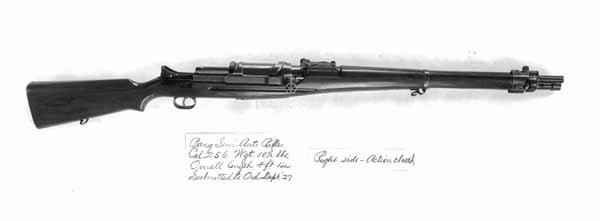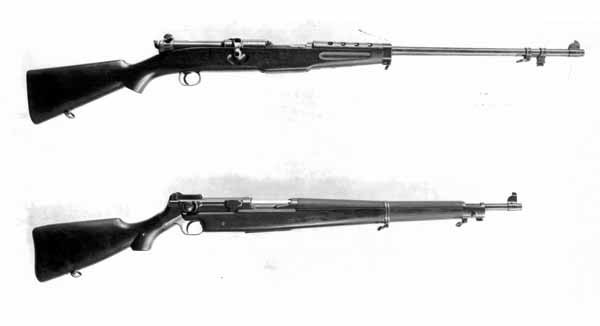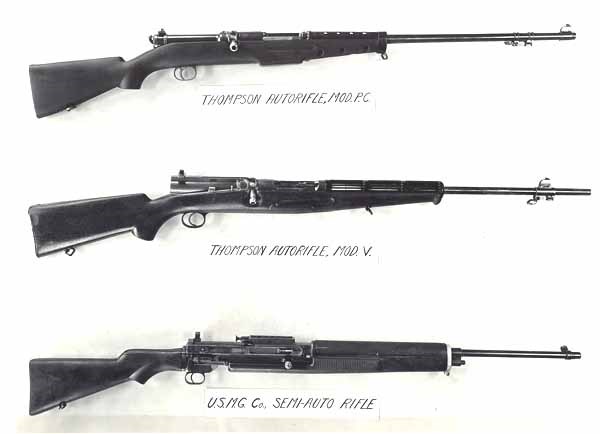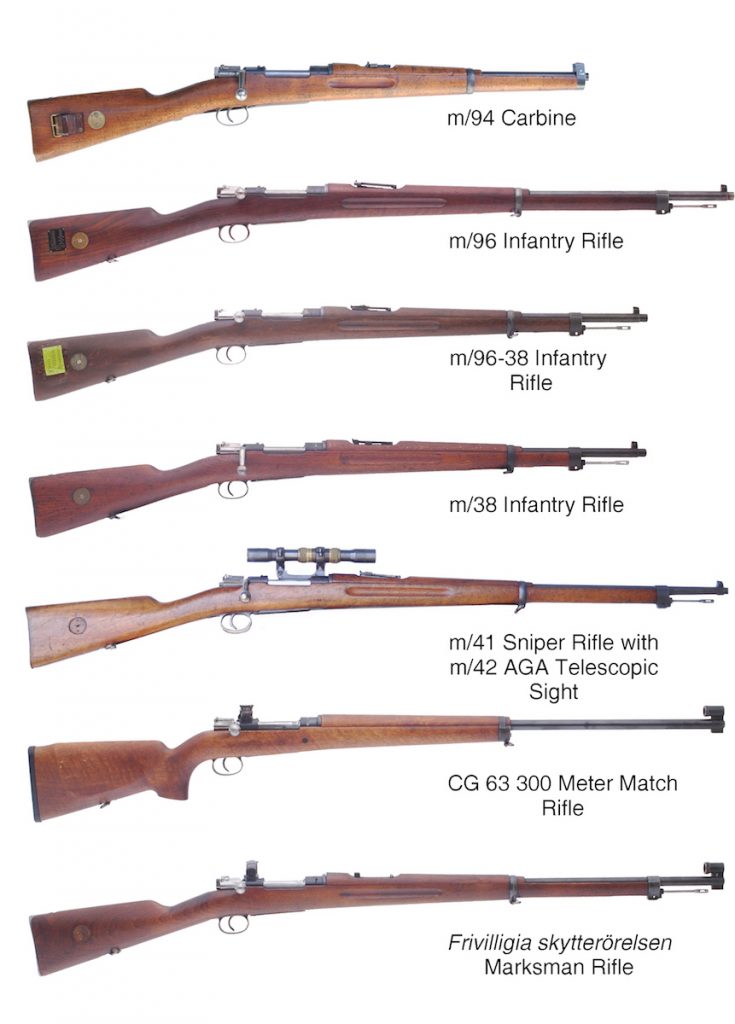yea some of those are in game
technically i didnt tell you that EVERY rifle is in game since i said SOME
man so many rifle from german to other country i guess when those country got add these will be their starter
exper semi-auto rifles 1919-31
Attempts at producing semi-automatic rifles that could fire the full-power military rifle cartridge continued with increasing intensity following the First World War. Many private designers and manufacturers submitted their weapons to the testing trials at Springfield Armory where any weakness or strength became immediately apparent.

The Model 1922 Bang rifle using the sliding muzzle-cap system.
Springfield Armory NHS archives, US NPS
The Model 1922 Bang rifle was a modification of the earlier Models of 1909 and U.S. .30" caliber Model 1911 Bang rifles. Produced in .256" caliber (6.5mm Krag), the rifle was handled by the inventor Soren Bang at the U.S. Ordnance Department trials in 1927 and 1919. “CLICK” here for Close-up view. “CLICK” here for Disassembled view.
___________________

The first of several rifles submitted to test trials by Capt. James Hatcher, the 1920 rifle was not robust enough for military service.
Springfield Armory NHS archives, US NPS
**U.S. RIFLE HATCHER-BANG .30 **SPAR5960
An improvement of the original Bang rifle, manufactured at Springfield Armory following WWI by Colonel James Hatcher, the brother of Major General Julian Hatcher. It was more rugged but was still not strong enough for general service use. It was abandoned after results from comparative tests in 1920. “CLICK” here for left side view. “CLICK” here for top view. “CLICK” here for disassembled view. “CLICK” here for a technical drawing.
__________________

This rifle used the Bang rifle muzzle sleeve system as had his earlier 1920 rifle, but it was a more robust design.
Springfield Armory NHS, US NPS
U.S. RIFLE MODEL 1921 HATCHER-BANG .30 SPAR6250
Manufactured by Springfield Armory, Springfield, Ma.
About September, 1920, Captain James L. Hatcher, then on duty in the Experimental Department at Springfield Armory, was directed to supervise the design of a semi-automatic rifle. This rifle was to have the principle and main mechanical features of the Bang Gun, which gave considerable promise in tests of a few years earlier, but to be better balanced, easier to handle, and have its parts so designed as to offer no special difficulty in manufacture. Development of the Bang system, as displayed in this rifle, was discontinued after the 1922 tests of this weapon “. . . by reason that while the design was not considered to be impractical, the tappet actuator system of Mr. Garand appeared to offer greater promise.”(from History of Army Ordnance and Experimental Projects) “CLICK” here for left side view. “CLICK” here for view of the rifle’s major components. “CLICK” here for disassembled view. “CLICK” here for close-up of the working parts.
_________________

The Blish system was designed so that opposed inclined steel surfaces are locked together by friction under high pressure and that the friction between the locking surfaces decreases as the pressure in the gun decreses finally becoming small enough to permit the residual pressure in the barrel to force open the bolt.
Springfield Armory NHS archives, US NPS
Thompson Autorifle Model 1921 [top], submitted by Colt’s Patent Fire Arms Manufacturing, Inc., for the 1921 trials used the Blish principle of metal adhesion, used in the famous Thompson submachine gun (“Tommy Gun”), as developed by Gen. John T. Thompson. This weapon was preceded by a similar model the year before. In trials in 1921 against the Garand Model 1921 [bottom], the Thompson rifle performed poorly. Later efforts by Colt with rifles using the Blish system were similarly disappointing.
__________________

Weapons submitted for the Nov-Dec 1921 tests:
TOP: Thompson Autorifle Model P.C., by Colt’s
MIDDLE: Thompson Autorifle Model V, submitted by Colt’s
BOTTOM: Bertier system semiauto rifle submitted by U.S. Machine Gun Co.
Springfield Armory NHS archives, US NPS



